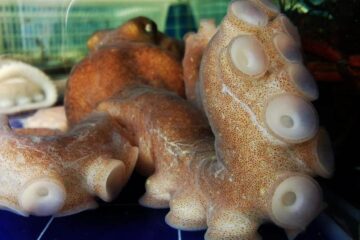Neurotex Ltd Offers New Approach to Nerve Repair

Neurotex Ltd is a joint venture company, bringing together the expertise of Professor John Priestley, Head of Neuroscience at Queen Mary’s School of Medicine and Dentistry, and the unique silk-based materials technology of Oxford Biomaterials Ltd.
Neurotex Ltd is developing a range of patented devices for the repair of damaged nerves using a modified wild silk developed by Oxford Biomaterials, called Spidrex. Initial studies have shown Spidrex to be highly supportive of directed nerve growth with low immunotoxicity.
Professor John Priestley, Scientific Founder of Neurotex expects that the research will lead to treatment for damaged nerves and may eventually lead to treatments for repairing damaged spinal cord.
“For us it’s an ambitious but realistic goal to repair the peripheral nervous system,” says Professor Priestley. “If you damage a peripheral nerve, so long as it has a support to follow, the nerve should regrow and hopefully the nerve injury will repair itself. If you damage the spinal cord, however, there are lots of things that will try and prevent the regrowth taking place, such as natural inhibitory components. To repair a damaged spinal cord, we will need different types of tubes and will have to combine other approaches such as stem cells, growth factors or other additives. So it’s a much longer term goal, but the rewards are potentially much greater.”
Dr Richard Skipper has been appointed Chief Executive Officer of the new company. Richard has 25 years experience in the marketing and manufacturing of aerospace, telecommunications and medical products, 16 years at board level with multi-national companies with an emphasis on producing medical devices, taking them from concept through to sales.
Media Contact
More Information:
http://www.neurotex.co.ukAll latest news from the category: Health and Medicine
This subject area encompasses research and studies in the field of human medicine.
Among the wide-ranging list of topics covered here are anesthesiology, anatomy, surgery, human genetics, hygiene and environmental medicine, internal medicine, neurology, pharmacology, physiology, urology and dental medicine.
Newest articles

Technical Trials for Easing the (Cosmological) Tension
A new study sorts through models attempting to solve one of the major challenges of contemporary cosmic science, the measurement of its expansion. Thanks to the dizzying growth of cosmic…

Peptides on Interstellar Ice
A research team led by Dr Serge Krasnokutski from the Astrophysics Laboratory at the Max Planck Institute for Astronomy at the University of Jena had already demonstrated that simple peptides…

Octopus inspires new suction mechanism for robots
A new robotic suction cup which can grasp rough, curved and heavy stone, has been developed by scientists at the University of Bristol. The team, based at Bristol Robotics Laboratory,…





















